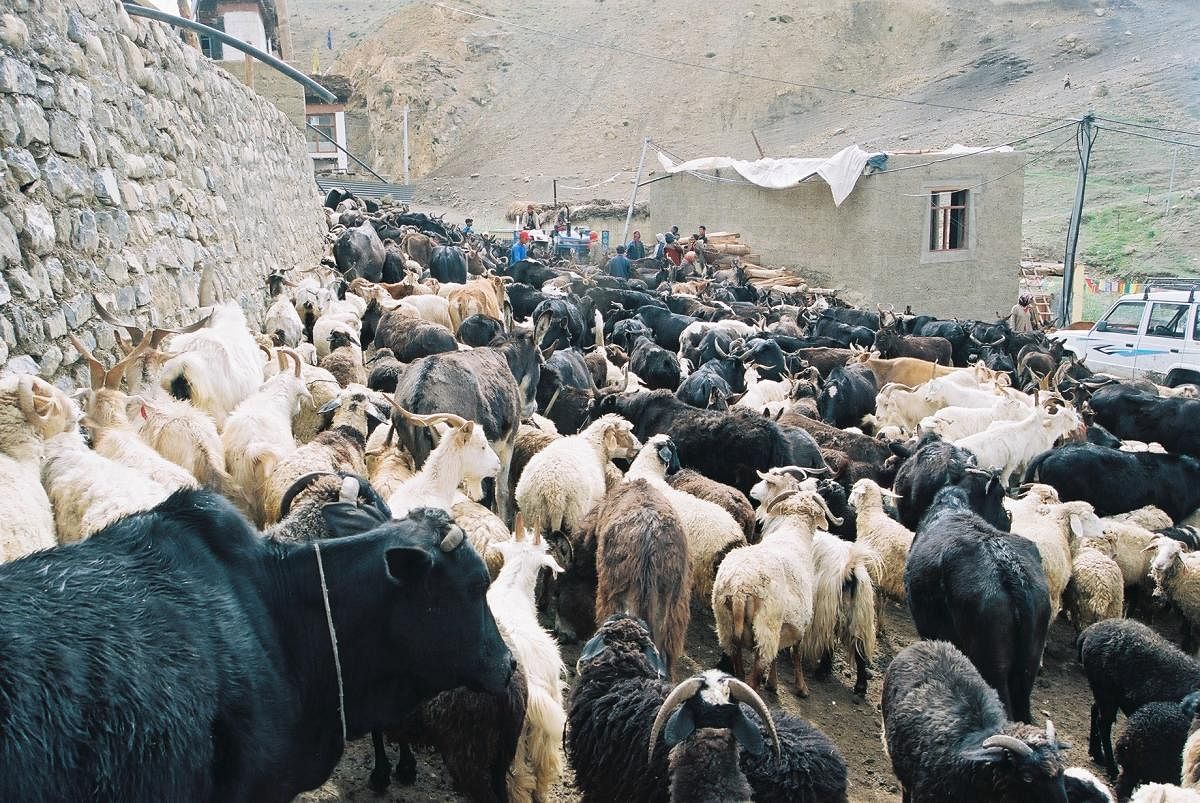
Researchers at the Centre for Ecological Sciences (CES), Indian Institute of Science (IISc), have traced low carbon storage in soil grazed on by livestock due to veterinary antibiotics used on them.
The CES study, done in the Spiti region of the Himalayas, found that antibiotics such as tetracycline, when released through dung and urine, alter the microbial communities in the soil in ways that are detrimental to sequestering carbon.
In a statement, IISc underlined the significance of soil as a reliable sink for trapping carbon which is key to mitigating climate change effects. Grazing by large mammals favours soil carbon storage in grasslands but around the world, wild herbivores are gradually being replaced by livestock, it said.
The researchers found that grazing by livestock leads to lower carbon storage in soil compared to grazing by wild herbivores. In a previous study, they had shown how grazing by herbivores helped stabilise the pool of soil carbon, in the same region. The current study compared characteristics of livestock such as sheep and cattle with their wild relatives such as the yak and ibex, in terms of their respective impact on soil carbon stocks.
The soil in the livestock areas had 19% lower Carbon Use Efficiency – which determines the ability of microbes to store carbon in the soil – than in wild areas. “This is part of a long-term study on ecosystem functions and climate change in the Himalayas, which was started in 2005,” Sumanta Bagchi, Associate Professor at CES and corresponding author of the study, published in Global Change Biology, said.
Higher levels of antibiotic residues were found in the soil under livestock. Dilip Naidu, PhD student at the Divecha Centre for Climate Change, IISc, and an author of the study, said this highlights connections among human land use, antibiotics, microbes, soils, and climate change.
Antibiotics such as tetracycline are long-lived and can linger in the soil for decades. Shamik Roy, a former PhD student at IISc and lead author of this study, said unregulated use of these antibiotics threatens climate and poses the risk of evolution of antibiotic resistance in pathogens that can cause difficult-to-treat infections in humans and animals.